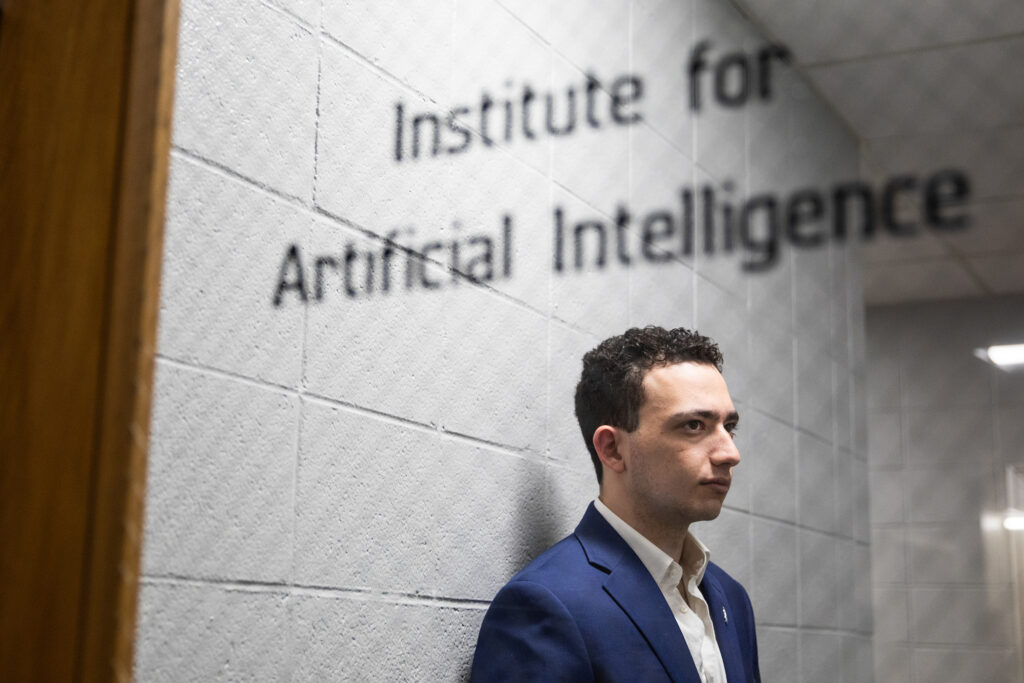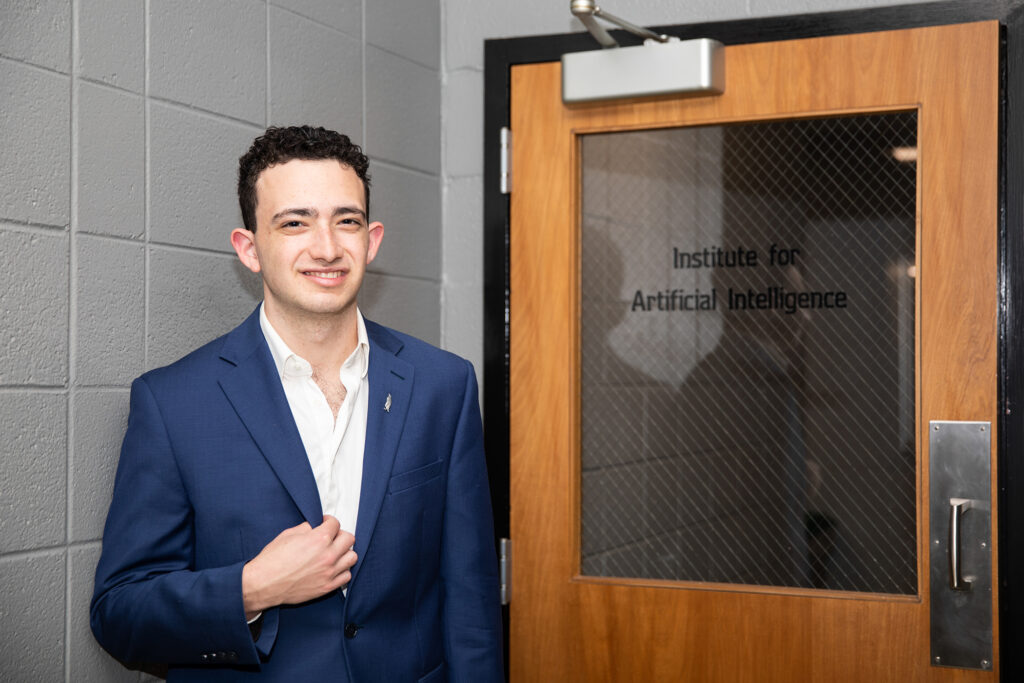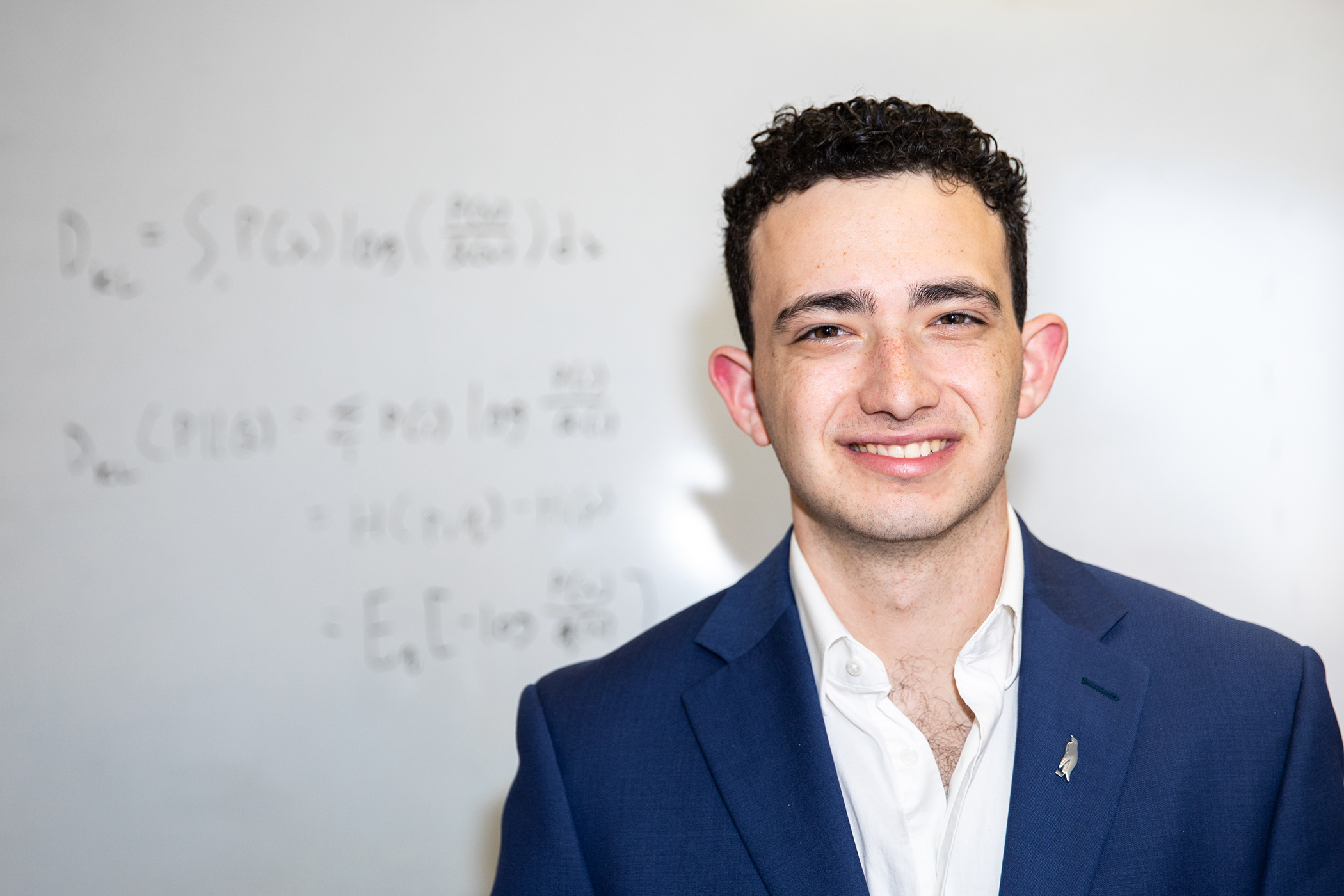As Nathan Safir was finishing up his master’s in artificial intelligence at the University of Georgia, he had a big decision to make: Did he want to accept the Marshall Scholarship to pursue a Ph.D. in computer science in England or accept an offer to start work at Google this summer?
Safir, a Foundation Fellow, applied his problem-solving brain to the decision.
“Mostly I tried to simplify it into a decision of ‘Am I more excited to work now or am I more excited to go to grad school now?’” said Safir, who has a B.S. in computer science with a minor in geography.

Google was the winner. For now. Safir hopes to get his Ph.D. in artificial intelligence sometime in the future.
Whatever way he gets there, the end goal is the same – he wants to work in artificial intelligence. “Whether it’s working on a new cool application, existing AI methods, or actually doing the research, I’d really love to work somewhere in that space,” said Safir.
This flexibility will serve Safir well at Google, because he doesn’t yet know what he’ll be doing at the company when he arrives in California this August. “They’ll start team matching closer to my start date,” said Safir. “All I know is that I’ll be in the Bay Area and possibly working on the Google Ads team.”
During a Google internship in summer 2021, he worked with the Cloud AI team.
UGA has helped him find his passion for AI in several ways. One was a difficult math class his first year in college. “I was a super eager freshman, so I took Math 3500. It’s notorious for being very tough, and it was. I was glad I took it, but I realized I was less interested in the proof-based rigorous mathematics.”

He decided to pick up machine learning instead. “It presented an interesting way to use mathematical thinking and be able to think creatively.”
Also helpful in guiding his path was UGA’s Foundation Fellowship, a merit-based scholarship based in the Jere W. Morehead Honors College that is awarded to between 20-25 high school seniors out of 1,200 applicants. It’s the reason Safir, who grew up in Kansas City, Missouri, ultimately chose UGA out of his ranked list of 13 potential schools.
He said he most appreciates the travel opportunities, although they’ve been a bit truncated during the COVID years, and the people he’s met along the way. “The network of people you can talk to about careers or cool places you could work – that type of thing was super helpful for me trying to imagine what I wanted to do in the future.” Safir said he interacts with staff, peers and friends from the Fellowship on a daily basis.
Safir’s gateway into programming was a documentary he saw in middle school on Mark Zuckerberg. “It said he learned C++ from a book when he was about my age so I checked out the same C++ book from the library. I don’t think I picked it up as quickly as he did, but that was the beginning of me trying to learn programming.”
“I’ve been into math and quantitative problem solving since I was really young. Programming was just an extension of that logical problem-solving,” he said.
Safir is a down-to-earth, well-rounded person who can move between playing in local Monday pick-up hockey games, coaching Athens Youth Hockey and working on his tennis game, to high-level problem-solving. But he’s happiest when he has a tough question to work on.
“My thesis is working on a theoretical problem of how to extend an architecture called variational autoencoders to work with both labeled and unlabeled data,” he said. “My lab, led by Dr. Quinn of the CS department, is at the intersection of biomedical imaging and artificial intelligence. It’s a theoretical problem inspired by a real-world problem. It’s an especially open field—I feel like there are a million different things you can work on. I’m just happy I can be a part of it.”


